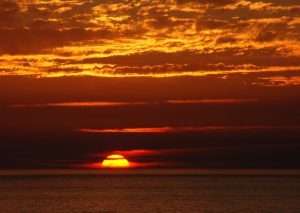
Between stimulus and response there is a space. In that space is our power to choose our response. In our response lies our growth and our freedom.
—Viktor Frankl
I wanted to share this with you from the writings of the Center for Action and Contemplative Center with Richard Rohr.
Viktor Frankl shares the one thing that even under horrific circumstances decided what they shall become is their spiritual freedom, “to choose one’s attitude in any given set of circumstances, to choose one’s own way. . . .”
The ability to choose to be aware, to choose to be compassionate, to choose to defy even the worst of circumstances.
We too can make this choice in light of the pandemic. We can pause when we become frustrated, afraid, lonely, take a breath and as Viktor Frankl did, choose to thrive and uplift others.
I love how he emphasizes that, “Between stimulus and response there is a space. In that space is our power to choose our response.”
It is that space in which I speak of all the time, the APB of inner harmony comes in that space “between stimulus and response”. There is that short space of time, that which is the sacred place of possibility. The ability to choose your response towards “growth and freedom” rather than hurt and fear.
Following is Viktor’s writing. Please take the time to read it. This truly is the greatest endorsement for a pause …. The APB of Inner Harmony … and its effectiveness even in the direst of circumstances.
Pause today, take 3 deep breaths to connect within, with God, and share this sacred breath of possibility with others of hope, compassion, and love.
We are Not Alone. We are One my friends … One Heartbeat ~ One Breath ~ One Song.
The experiences of camp life show that humanity does have a choice of action. There were enough examples, often of a heroic nature, which proved that apathy could be overcome, irritability suppressed. Humanity can preserve a vestige of spiritual freedom, of independence of mind, even in such terrible conditions of psychic and physical stress.
We who lived in concentration camps can remember the people who walked through the huts comforting others, giving away their last piece of bread. They may have been few in number, but they offer sufficient proof that everything can be taken from a person but one thing: the last of the human freedoms—to choose one’s attitude in any given set of circumstances, to choose one’s own way. . . .
Even though conditions such as lack of sleep, insufficient food and various mental stresses may suggest that the inmates were bound to react in certain ways, in the final analysis it becomes clear that the sort of person the prisoner became was the result of an inner decision [emphasis mine], and not the result of camp influences alone. Fundamentally, therefore, any person can, even under such circumstances, decide what shall become of them—mentally and spiritually. They may retain their human dignity even in a concentration camp. . . . It is this spiritual freedom—which cannot be taken away—that makes life meaningful and purposeful. . . .
The way in which a person accepts their fate and all the suffering it entails, the way in which they take up their cross, gives them ample opportunity—even under the most difficult circumstances—to add a deeper meaning to their life. It may remain brave, dignified and unselfish. Or in the bitter fight for self-preservation they may forget their human dignity and become no more than an animal. Here lies the chance for a person either to make use of or to forgo the opportunities of attaining the moral values that a difficult situation may afford them. . . .
When we are no longer able to change a situation . . . we are challenged to change ourselves.

